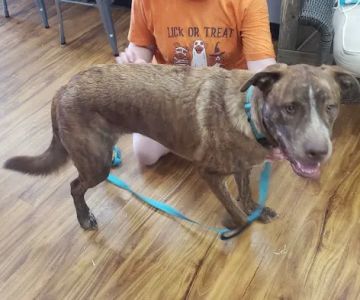What to Do if Your Dog Eats Something Dangerous: Immediate Steps for Pet Safety
- Recognizing Symptoms of Dog Poisoning
- Immediate Actions to Take if Your Dog Eats Something Harmful
- When to Contact a Veterinarian: Emergency Steps
- Preventing Harmful Incidents: How to Keep Your Dog Safe
1. Recognizing Symptoms of Dog Poisoning
If your dog eats something dangerous, the first step is to recognize the signs of poisoning or harm. Dogs are naturally curious, which sometimes leads them to ingest harmful foods, chemicals, or objects. Symptoms of poisoning or distress include vomiting, diarrhea, excessive drooling, loss of appetite, lethargy, tremors, or unusual behavior. In severe cases, your dog might show difficulty breathing or seizures.
It’s important to remain calm and assess your dog’s condition. Not all ingested substances cause immediate symptoms, but some dangerous items can lead to severe complications over time. If you notice any of these signs or are unsure of what your dog has eaten, it's important to take action quickly to prevent further harm.
2. Immediate Actions to Take if Your Dog Eats Something Harmful
The first thing to do when your dog eats something dangerous is to determine what they ingested. If possible, keep the packaging or item in question to show to your veterinarian. Next, assess the severity of the situation:
- If your dog ate something toxic or poisonous, call the pet poison control hotline immediately or your local veterinary clinic. They will guide you through the necessary steps and let you know whether to induce vomiting.
- If your dog has eaten a non-toxic substance or an object, monitor them closely for symptoms. Some objects, such as bones or plastic, can cause blockages or injuries within the digestive system.
- Never induce vomiting without consulting a professional first, as certain substances can cause more damage if vomited.
Once you’ve consulted a professional, follow their guidance on whether to bring your dog in for immediate treatment. If your veterinarian recommends bringing your dog to the clinic, act quickly and transport your pet safely.
3. When to Contact a Veterinarian: Emergency Steps
If your dog has ingested something dangerous and is showing signs of distress, it’s time to contact a veterinarian. Even if your dog seems fine initially, some poisons or hazards don’t show immediate symptoms. Here are signs that you should reach out to a vet immediately:
- Vomiting or diarrhea that lasts for more than 24 hours
- Severe lethargy or weakness
- Loss of coordination or walking difficulties
- Seizures or tremors
- Difficulty breathing or abnormal breathing patterns
In the event of an emergency, prompt veterinary care can be the difference between a full recovery and long-term health issues. Make sure to have your veterinarian's contact information handy and know the nearest emergency clinic in case of an urgent situation.
4. Preventing Harmful Incidents: How to Keep Your Dog Safe
Prevention is the best strategy when it comes to your dog’s safety. Here are some key steps to ensure that your dog doesn’t accidentally ingest something dangerous:
- Keep harmful foods such as chocolate, grapes, onions, and garlic out of reach. These are toxic to dogs and can cause severe harm if ingested.
- Secure cleaning supplies, medications, and any other potentially dangerous substances. Store them in cabinets or containers that your dog cannot access.
- Supervise your dog when outdoors, especially in areas where they might encounter harmful plants or chemicals.
- Educate family members and visitors about what your dog can and cannot eat. This reduces the risk of accidental poisoning.
By being proactive, you can minimize the risk of your dog eating something harmful and ensure a safer environment for them. Regular check-ups with your veterinarian also help ensure your pet’s overall health and prevent potential dangers.
For more information on how to protect your pet and ensure their health, visit Hidden Brook Veterinary for expert advice and care.











